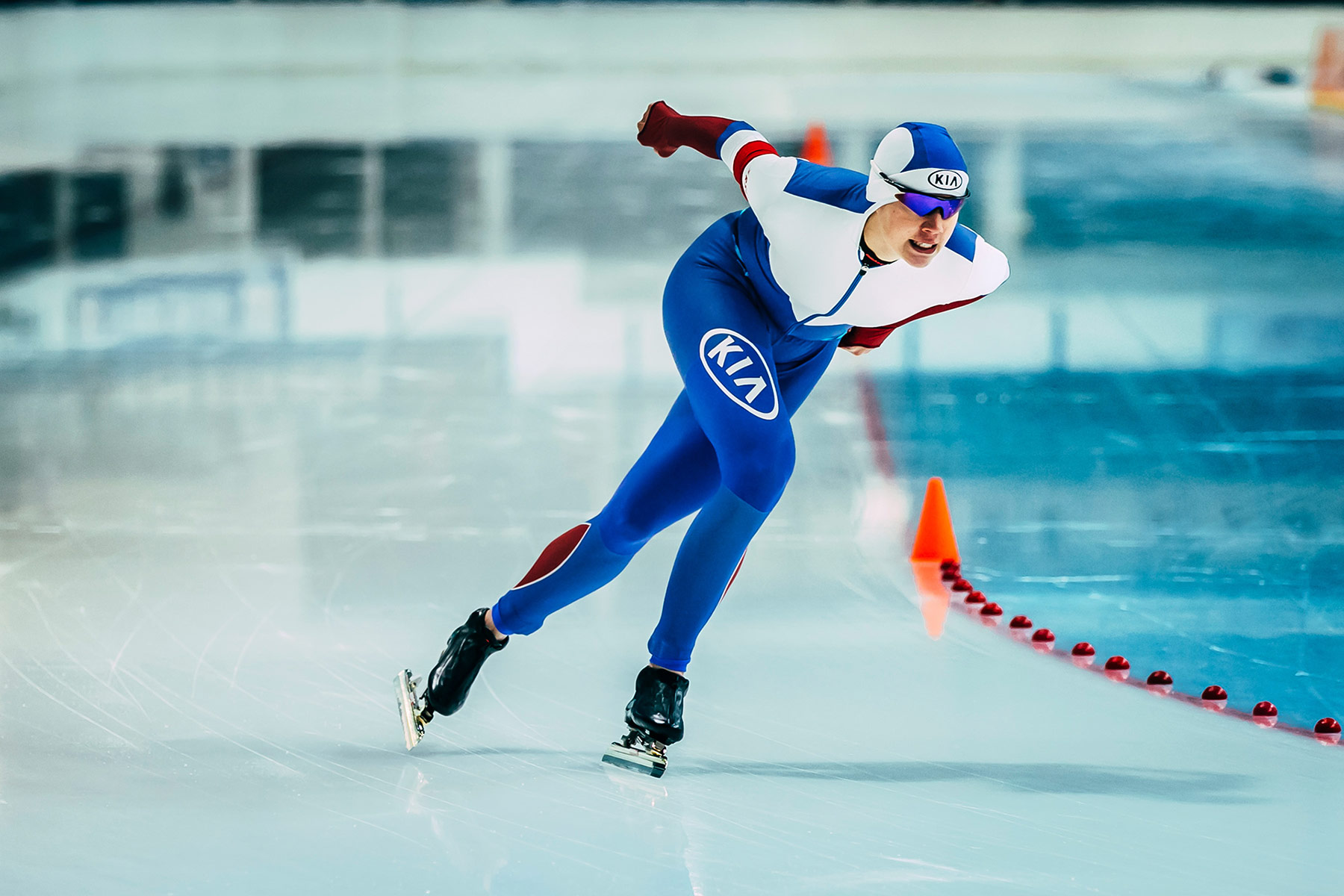Sir Alex Ferguson, who managed Manchester United between 1986 and 2013, the Premier League club’s most successful period, employed an age-old trick to motivate his players. He convinced them that the whole world, including the referees, was against them and wanted them to lose. It worked. The siege mentality gave his teams a belligerent defiance, a restless energy and the never-say-die attitude that characterized Ferguson’s managerial reign.
What England’s Premier League Did for Football
I have no idea whether Russian President Vladimir Putin is familiar with Ferguson’s motivational strategies nor whether he has even heard of him (though I suspect he has). Yet they are improbable kindred spirits. Putin seems to share with Ferguson a defensive or paranoid attitude predicated on the conviction that they are surrounded by enemies. It’s possible to imagine Putin addressing his aides with the kind of blistering, expletive-fueled tirade that used to be known in football circles as the hairdryer treatment.
Sweeping Russophobia
The siege mentality that was integral to Ferguson’s success is easy for Putin: The rest of the world actually is against him and his subjects. I’ll exclude Belarus (and, for the time being, China), but pretty much everywhere else has decided that the seemingly obsessive Putin is leading his country maniacally toward self-destruction, probably taking a good portion of the rest of the world along for the ride.
Let me define Russophobia as a strong and irrational dislike of Russia and all things Russian, especially the political system of the former Soviet Union as well as its current leader. In Ukraine, ruling parties have pursued a nationalist Russophobic agenda at least since 2018. The sharp increase in worldwide Russophobia since the invasion — or liberation, depending on your perspective — of Ukraine is unprecedented, at least in my experience.
The collective punishment of all Russians, whatever their status, affiliation or political outlook for what appears to be Putin’s war, is going to have effects, an unintended one being that it will probably encourage national solidarity in Russia. It’s unlikely to turn people against the man in the Kremlin and is much more likely to encourage the kind of paranoid mentality that would make Sir Alex envious.
Russian oligarchs, like Chelsea Football Club’s owner (for the time being) Roman Abramovich, will no doubt be angry, particularly at having to dispose of his £150 million London home. But they are not going to renounce Putin: A new home like the one Mikhail Khodorkovsky, Russia’s former oil tycoon, was given at the YaG-14/10 penal colony in Siberia for 10 years might await.
Consumer brands such as Apple, Nike and Ikea have pulled out of Russia, followed by PayPal, Visa and MasterCard. Sales of certain Russian vodkas outside Russia have stopped. The broadcaster RT has been removed from British, American and other platforms, presumably to protect guileless viewers becoming brainwashed by Putin’s propaganda.
Sports Boycott
The Russophobic blizzard has swept into sport too. Football’s governing organization FIFA has suspended Russia from international games, thus eliminating the country from the forthcoming World Cup (Russia is currently appealing this). The International Olympic Committee (IOC) has recommended to sports organizations that they deny the participation of Russian and Belarusian athletes, even as representatives of the Russian Olympic Team or any other spurious denomination.
Formula 1 has terminated its contract with the Russian Grand Prix. The International Paralympic Committee has banned Russians from the Winter Olympics (again subject to appeal.) A full-scale sports boycott of Russia is in the air, probably affecting all athletes, even professional tennis players like Daniil Medvedev, who currently lives in Monaco. The question is, will the sports boycott and other prohibitions actually hasten a cease to the hostilities in Ukraine or will they instead have a paradoxical effect?
The only comparable precedent we have is in South Africa under apartheid. The IOC withdrew its invitation to South Africa to the 1964 Summer Olympics when the country’s interior minister Jan de Klerk insisted that the national team would not be integrated. It would, he said, reflect the segregation of South African society — in other words, the team would be white. Other sports followed the IOC’s example until, in 1977, the embargo was enshrined formally in the Gleneagles Agreement, which effectively turned South Africa into a sports outcast.
Countries that kept their sporting links with South Africa were themselves ostracized, or blacklisted, as it was known. Individual athletes were forced to compete outside South Africa. Zola Budd and Sydney Maree were notable examples, Budd moving to the UK, Maree to the US. The boycott was eventually removed when apartheid fell in 1990, its total disappearance celebrated in the 1995 Rugby World Cup that which took place in South Africa and was won by an ethnically diverse home team.
We often look back and think the much-publicized sports boycott was a determining factor in ending apartheid, and it’s satisfying to imagine that the fusion of sport and politics produced a joyous and wonderful culmination. Certainly, the sports prohibition was an awareness-raiser and effectively signaled the rest of the world’s abhorrence of constitutional racism.
But it dragged on over two decades and there is, inconveniently, no conclusive evidence that it had any impact on President F. W. de Klerk’s decision to lift the ban on the African National Congress and other black liberation parties, allowing freedom of the media and releasing political prisoners. Nelson Mandela was freed from prison after 27 years, on February 11, 1990.
Money And Morals
The sports boycott embarrassed South Africa as the current cold-shoulder will embarrass Russia. It may also have also have persuaded South Africans, in particular white South Africans, that their prolonged period of misfortune was the result of the antipathy of the outside world. That is probably what will happen in Russia. Citizens will be exasperated when their access to consumables is strangled and they can’t use credit cards to purchase whatever products are left. They’ll probably resent being restricted to Russians-only sport.
But it won’t make a scrap of difference to the wider conflict and might in fact strengthen the resolve of the Russian people. This is not the narrative we are offered by the media, of course.
The longer Russia is starved of international sport, the more credible the siege theory will become. In any case, the boycott will be fractured. Money often strains morals, especially in professional sports. For all the proscriptions and threats of blacklisting, South Africa was still able to offer enough filthy lucre to attract world-class cricketers, including Geoff Boycott, footballers such as Bobby Moore, boxers like Santos Laciar and other athletes. Even the African American promoter, Don King, a staunch critic of apartheid, had agreements with South African boxing, revealed by The New York Times in 1984.
The same will happen in Russia. If it prevails in Ukraine, the probability is that there will be some form of state under the full or partial political control of Moscow, meaning no softening on the various debarments. The sports boycott will expand. This will leave major sports organizations with a new question: Do they recognize Ukraine as an independent sporting nation as it has been since 1991, or as a Russian colony, dependency or protectorate? Ukrainian athletes so far haven’t been excluded from international competitions. If they were, the cruelty would be redoubled. It would be a repugnant collision of injustices.
Perhaps justice would be better served if the block on Russian sport were lifted. I know this sounds counterintuitive and might appear to reward, or at least accept, an aggressive act. But I take counsel from the adage that two wrongs don’t make a right. An action, no matter how heinous, is never a justification for wrongful behavior.
Many readers will not interpret a sports boycott as wrongful behavior, merely a reaction to provocation. Perhaps. But it would be foolish to hyperbolize the importance of sport; obviously it is not as serious as war, or a million other things. So, why hurt people who are not responsible for the original sin? Anyway, in a practical sense, it would serve to show that while the leadership in Moscow may indeed be execrated, the 144 million Russian people are not.
*[Ellis Cashmore is co-editor of Studying Football.]
The views expressed in this article are the author’s own and do not necessarily reflect Fair Observer’s editorial policy.
Support Fair Observer
We rely on your support for our independence, diversity and quality.
For more than 10 years, Fair Observer has been free, fair and independent. No billionaire owns us, no advertisers control us. We are a reader-supported nonprofit. Unlike many other publications, we keep our content free for readers regardless of where they live or whether they can afford to pay. We have no paywalls and no ads.
In the post-truth era of fake news, echo chambers and filter bubbles, we publish a plurality of perspectives from around the world. Anyone can publish with us, but everyone goes through a rigorous editorial process. So, you get fact-checked, well-reasoned content instead of noise.
We publish 2,500+ voices from 90+ countries. We also conduct education and training programs
on subjects ranging from digital media and journalism to writing and critical thinking. This
doesn’t come cheap. Servers, editors, trainers and web developers cost
money.
Please consider supporting us on a regular basis as a recurring donor or a
sustaining member.
Will you support FO’s journalism?
We rely on your support for our independence, diversity and quality.







Comment